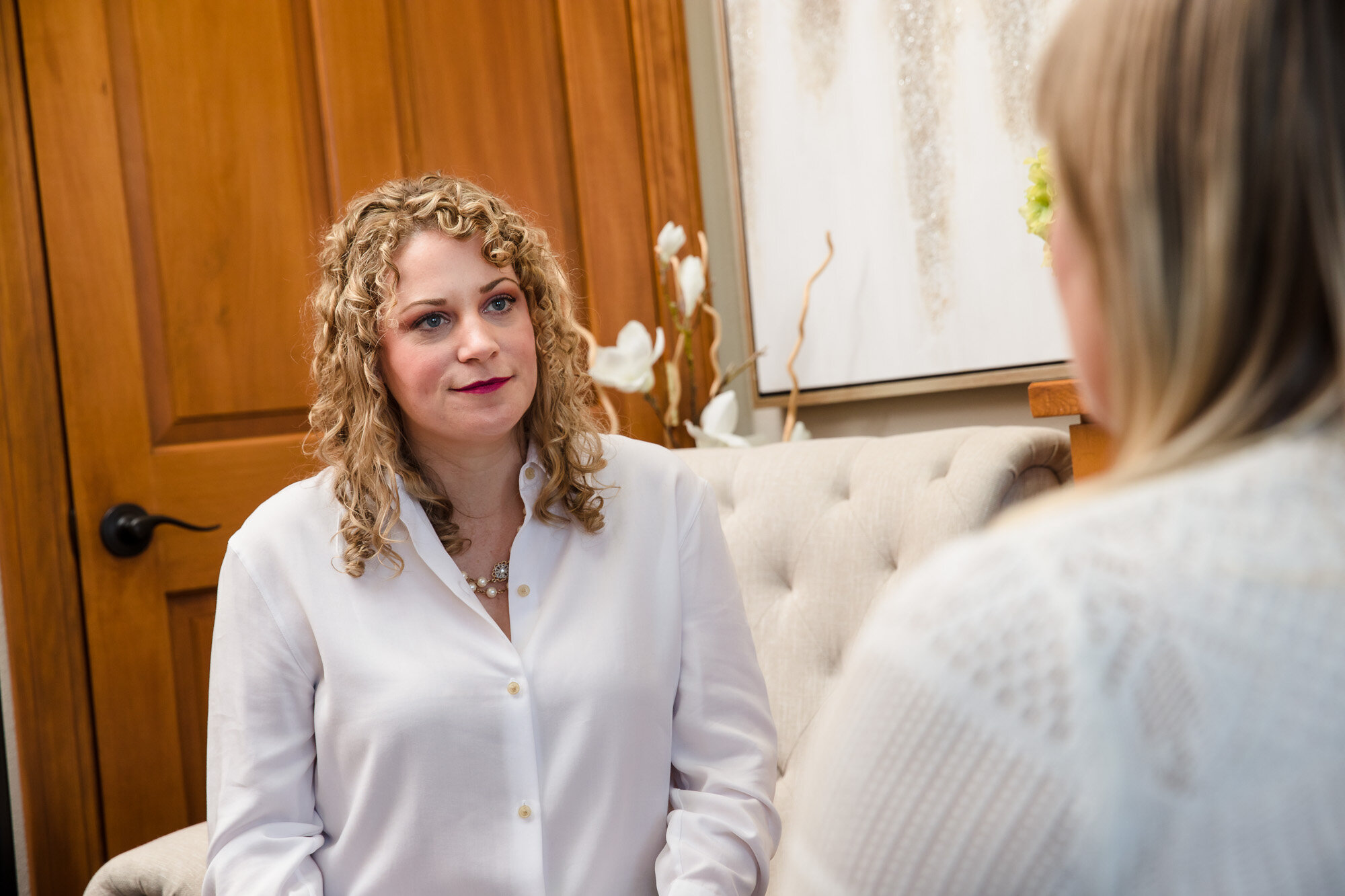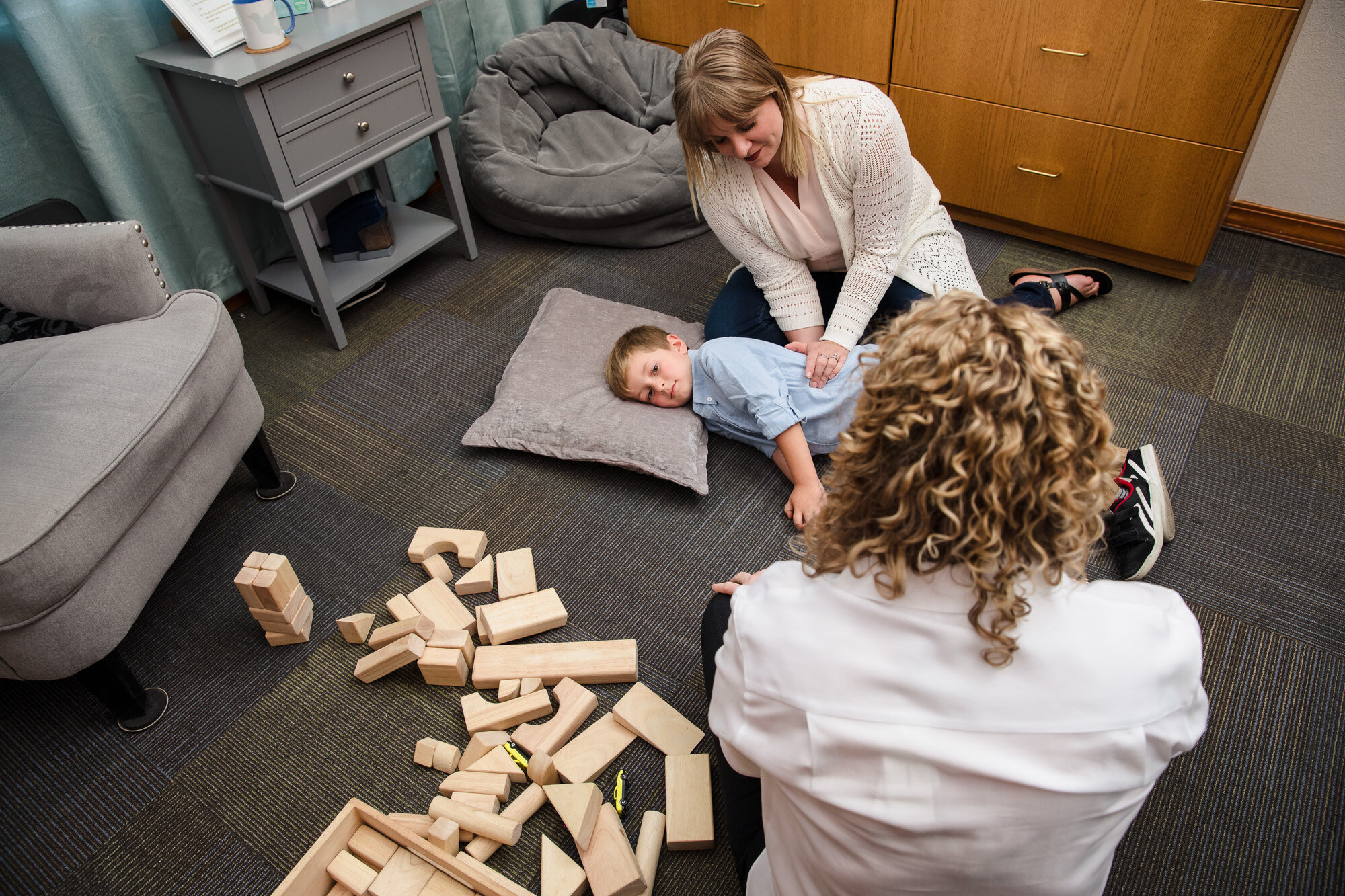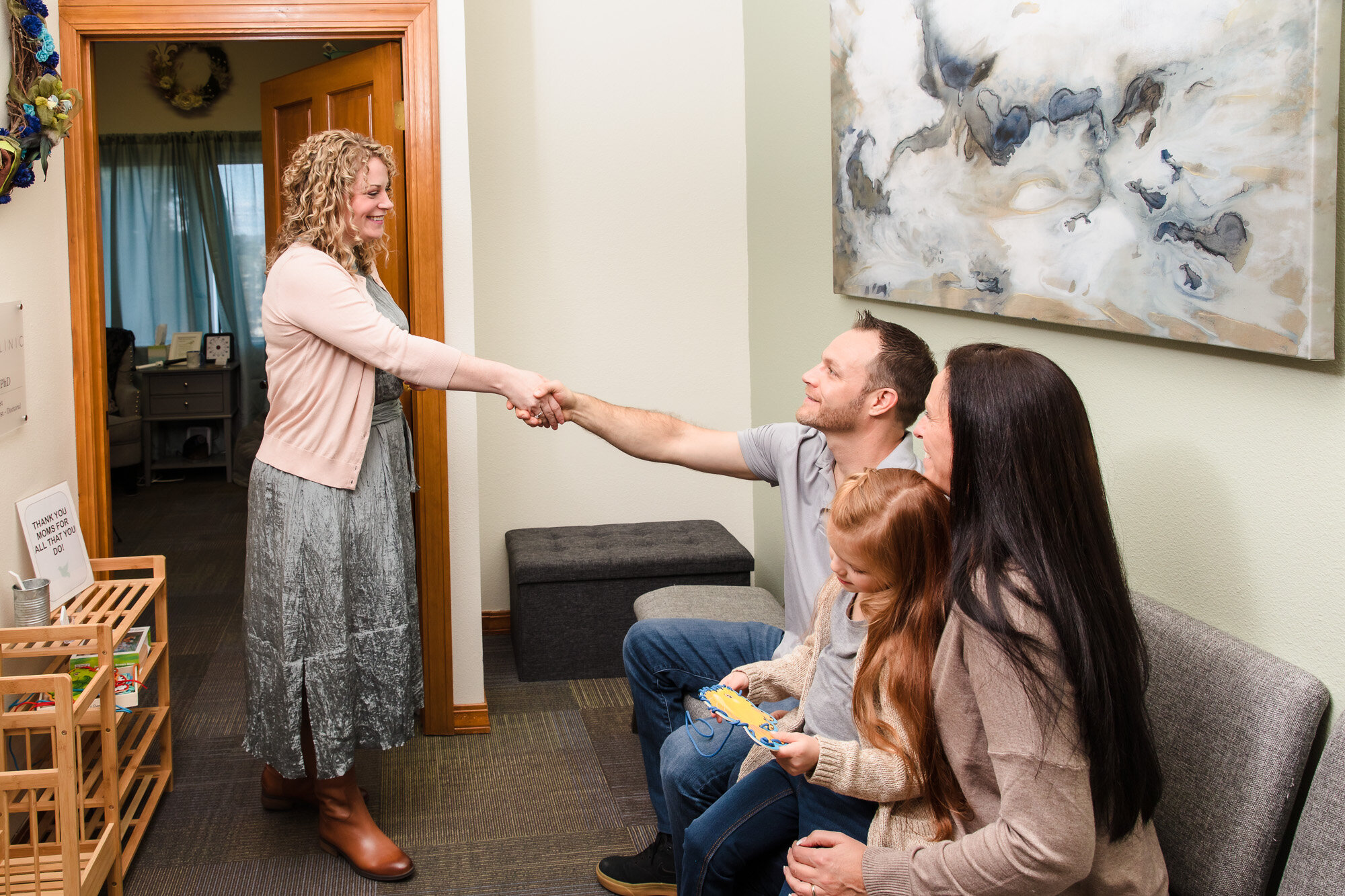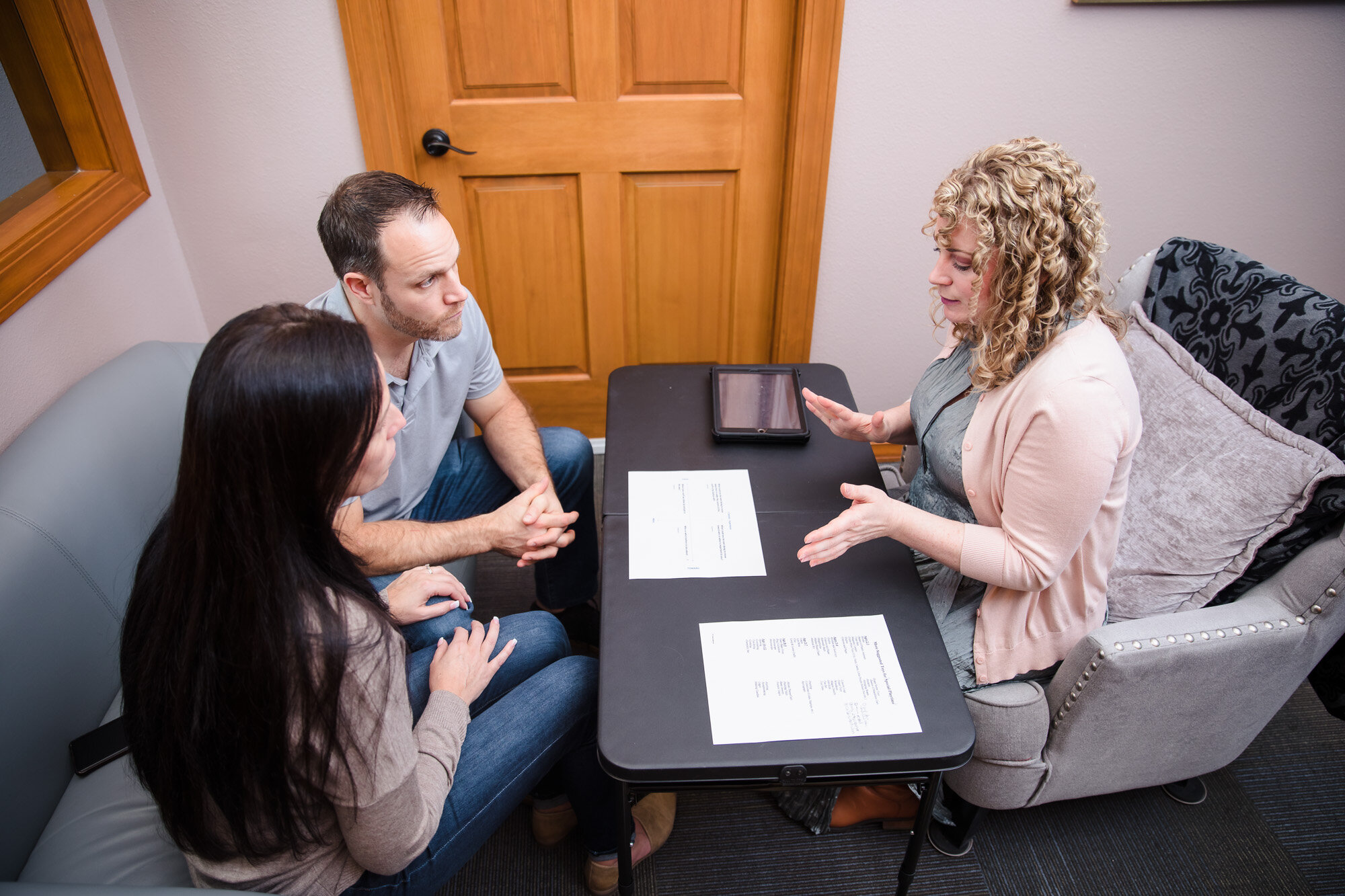Today we are talking about alternative treatments for supporting your child's behavior. Alternative treatments might be things like essential oils, elimination diets, using the moon to decide when you will go out for fun activities versus hunkering down in anticipation of naughty behavior, and other types of old wives tales and Instagram / Pinterest wisdom that is not necessarily linked to evidence-based studies. Many providers, including physicians, psychologists, therapist, and others, get this question all the time. It's a very important question because it frames the way that you as a parent will approach treatment for your child and the energy and attributions you give to interventions along your child's journey.
Read MoreGiftedness and Special Needs
I'm chatting today with a psychologist who specializes in giftedness, Andrea Lein. She and I really nerded out... for a while. We talk about what giftedness is, what twice exceptional is (when a gifted personal has a learning or emotional disability in school), and how parents can approach supporting twice exceptional children. Enjoy!! (I know we did!)
Read MoreHow to do breathing and mindfulness | Working with a physical/yoga therapist and psychologist
Meet Jen Wilking! She is a physical therapist and yoga therapist who has honed in on helping people to learn how to relax their mind and body. In this video she teaches us how to breathe properly, and then we do a live demonstration of a 5-minute mindfulness practice. We discuss how breathing correctly and mindfulness can change your stress level and how parents can
Read MoreHow to Teach Your Child to Have a Healthy Relationship with Food (and to Eat Well)
I'm chatting with Michelle Winebender, a Registered Dietitian and Nutritionist for over 25 years (and a good friend of mine). We chat about how to create healthy eating habits in young children so that they grow up to have a good relationship with food. Michelle helps with the super common questions I get "Is my kid eating enough?" and "Will my child get a nutrient deficit if I can't get them to eat more variety?"
Read MoreFlexible home learning schedule | How to Keep kids engaged
We're taking a break from expert chats today so I can bring you information that I believe is awesome and super helpful to creating a learning-at-home schedule that benefits your child and you.
I'll go into the one big secret that teachers have been doing in Finland's schools for a while now. It helps increase attention and productivity in kids, promotes better mood, and is associated with higher achievement scores and better brain development.
Read MoreFunding College: Info for special needs and traditional students
Dr. Blevins chats with Katrina Roy and Peter Tassoni, both employed with the state of Washington, about considerations for college financial planning. Planning for both special needs and typically developing children are covered.
Download the presentation here: https://teachdirections.enildaclinic.com/funding-college
Questions covered include:
1. What might be additional factors to consider, financial opportunities, or hurdles to overcome when planning for college if a child has special needs?
2. What if your child is considered disabled and won’t get a traditional college credential. Is funding available for them?
3. For typically developing kids, what’s the ideal planning path?
4. For typically developing kids, if I haven’t planned and my kid is now in high school, what should I be doing to best prepare for a good financial situation with them in college?
5. What is my child’s responsibility (at various ages) that I can encourage them to do to contribute to their college financial health?
Read MoreBuilding Routines and Habits During Summer
It's finally summer!! The stress of homeschooling is over. The governor in Washington just announced that schools will be taking students in for a physical open in the fall. Ahhhh!!!
You deserve a break! You've worked hard doing multiple jobs for 3 months straight. Go ahead and plan that getaway!!
Today's learning topic is for when you come back rejuvenated from break and the kids are settling into their summer routine. Just before they start in with the "I'm bored" statements. Today's topic is about reducing kid frustration and increasing their cooperativeness through environmental arrangement.
Specifically, environmental arrangement is …
Happy Memorial Day! | How to Reflect on a Lifetime of Values
Happy Memorial Day!
I wanted to spend some time with you today reflecting on values. Values inherently lead us to think about the past and future. Many military women and men have died in the past to give us this future. What is pursuing happiness if not pursuing your values? Through my practice of Acceptance and Commitment Therapy (ACT), I more and more become aware of my pursuit of happiness, my freedom to become the person I might most aspire to be.
And let's be honest... I become more aware of my drive to be who I intentionally set out to be because I'm older and wiser. Every day. Tomorrow I may shift my aim just a bit because yet again I'll be older and wiser. I'll learn from my past because of my commitment to these values.
I recently had a conversation with my sister about this very topic. She told me that she never thinks about how she is intentionally developing herself or creating her pathway across life. She just notices things about herself, and simply accepts that she is who she is. As a psychologist, that's soooo different from me. I have to admit she has great self-esteem.
I notice through my training, I've become aware of the small flinches of unhelpful thoughts that distract me, the uncomfortable feelings that can paralyze me, or the small habits that can become a lifetime of inaction. I would say I have "realistic" self-esteem. My sister is very happy, and so am I. She is very present-moment centered, whereas I try to see the thread connecting myself from the past, to the present, to the future.
ACT is said as the word, to mean "doing." Today's video takes you through a brief exercise that allows you to experience the future you tied by a thread to today's you. By finding what really stands out as important to you across a lifetime, you find your values.
An interesting feature of ACT, and what I really appreciate in my sister, is the ability to give nonjudgmental acceptance to present-moment thoughts and feelings, even when they're uncomfortable. If you do the exercise and you find you're out of alignment with a cherished value, it may be uncomfortable. Just like my sister, accepting the uncomfortable feelings brings a sense of accepting who you are in totality.
What's most interesting about ACT, is if you can see the invisible thread from who you are now to the future you that you cherish, you'll know exactly how you'll want to act to get there. It's like your own personal map for life.
In sum, the acceptance part and the commitment part of act are both important. We're living beings moving along on a journey. I hope you enjoy this brief educational exercise. It's designed to help you understand what ACT is. If you want to learn more, you can establish services with an ACT provider in your state.
Warmly,
Dr. Blevins
New Sex Education Laws in WA State - Review of K-3
Dr. Blevins discusses the new sex education requirements in Washington state for kindergarten through third grades. She focuses on the new requirements and how this relates to what we know about human development in regards to healthy relationships. She also provides information to support parents in taking charge of their children's sex education at home, providing information about why it is important, a book to help guide the conversation, and how the state's new standards fit in.
Read MoreTeach Your Child to Follow Directions
I'm so excited to share with you a new e-learning tool I've developed, the How to Teach Your Child Directions e-Learning Packet. It is a free step-by-step guide of how to give effective directions to young children and how to respond to them to increase child compliance. The packet is for parents and teachers. It goes through the rationale for each step and gives examples and non-examples. I also give you pro-tips for creating your own two-week plan for using what you learn and noticing the change in your child and yourself. When you sign up to get the packet, you'll also get five emailed pro-tip videos across two weeks giving you additional information on how to stay motivated and effectively use the packet information. The e-learning packet is based on information from applied behavior analysis, acceptance and commitment therapy, and parent-child interaction therapy.
Read MoreFunctional Academics During Isolation: Reduce Stress
Functional academics are the basic life skills that academic learning helps us to do competently. This gets right to the point of academics. It's where the classroom meets real life. Does your child understand why and how they might use academics in real life? Homeschooling can be fun because you can focus on exploring more rather than rote practice. Maybe you do some FUN activities at home to demonstrate the usefulness of academics (while getting them to do a little reading or math). This includes cooking, grocery shopping, fixing things around the house, getting dressed, learning routines, etc. These types of activities build math skills, reading, organization, memory, and social skills. You can go to previous Enilda Clinic videos about praise to learn more about how to really target these skills when you're doing functional academics. Be creative and take pressure off yourself and your child to sit for hours doing school work by focusing on the functional parts of academics.
Read MoreHow Parents Can Teach Kids to Apologize
Many parents want their children to understand the underlying values behind apologizing or saying "I'm sorry". They try to help their children to engage in apologizing by encouraging the behavior from an early age. But often I see a paradoxical effect where children experience resentment, agitation, anger, and relationship distancing when they are made to apologize. This video discusses how parents can decide for themselves what values they intentionally want to teach by encouraging the behavior of apologizing, and how to teach apologizing to emphasize those values with toddlers and preschoolers. We discuss modeling, praise, approximations of the goal behavior, rehearsing, and value labeling as strategies parents may want to consider.
Read MoreHow a Psychologist Does Self-Care After Two Weeks in Isolation
Dr. Blevins tells you how she's engaging in self-care this week. Needs may change as the pandemic changes or isolation is prolonged. Each person should consider where they need support in their life and strive to create ways to provide self-compassion and active coping through self-care that best suits them.
Dr. Blevins' personal strategies include:
1. Taking time for personal life every day. No more workaholic lifestyle. 2. Doing physical tasks/activities that create an inner monologue of caring for one's self, like cleaning the home, doing fun personal grooming, etc. 3. Daily outside exercise 4. Creating space for normal everyday topics 5. Using a heating pad as recommended by a pharmacist to reduce eye strain and tension headaches from increased online work 6. Call people in my social network more often. Recognizing that they are wanting the support as much as me.
Read MoreGetting Less Preferred Tasks Done | Academic Organization Strategy
In this learning video, Dr. Blevins discusses how parents can support their learners to complete less preferred or more difficult tasks easier by arranging them to occur just before tasks the learner is likely to complete. Do Harder/Less Preferred Tasks, then do easier/More Preferred Tasks. A big take away of this video is that during this difficult time, parents should give themselves self-compassion with creating an academic schedule that works for their family. Not everyone will be able to do what their schools asks of them, and that's okay. Find what works for you and your child. Hopefully small organizational and prevention strategies will help you all to get through this trying time easier. Squirrel Cat is heard in the video hunting for treats in her puzzle box.
Read MoreFun At-Home Experiment to Teach Children How Germs Spread
Have some fun while staying home for the next few weeks. Dr. Blevins demonstrates a simple experiment to help kids visualize how easy it is for germs to spread as well as how thoroughly you need to hand wash to get them off. Cinnamon is used to help kids see how germs spread. Dr. Blevins is providing parenting, behavioral, and coping support educational resources over the next few weeks as a special topic in her educational learning video series.
Read MoreGiftedness and Specific Learning Disability... Can a kid have both?
Can you be gifted and have a specific learning disorder, like dyslexia or dyscalculia, or even ADHD? Sure can! This is often called "Twice Exceptional." The symptoms look different for children who are gifted, and parents and teachers will still want to identify and support these children. You can reduce imbalanced school-life activity, inefficient work and study habits, and promote positive self-esteem by helping gifted children to understand how to self-advocate and to show themselves compassion.
Read MorePreventing Tantrums
I'm discussing the prevention of tantrums in young kids thru the use of language building. I'll specifically hit on Functional Communication Training, or teaching your child to use language to get their needs met instead of using the tantrum behavior. This is a preventive strategy designed to help the kid see language as an easier and more effective means to getting what they want than tantruming.
Remember that all Enilda Clinic learning videos are just for educational purposes. If you have a specific concern, ask your child's pediatrician about how to proceed or seek specialized support by establishing services with a specialized provider. Enilda Clinic is home to Dr. Leslie Blevins, a licensed psychologist and BCBA-D in Spokane Wa serving children and parents. Learn more at EnildaClinic.com or call at 509-844-0002. We're located at 705 W 7th Ave, Ste D, Spokane, WA 99204.
Read MoreParenting and Video Games
I chat with many parents who are concerned about their child's use of video games. In today's learning video I discuss what signs to look out for that may indicate you want to change things up at home related to video games, a framework for thinking about video games in the context of other life activities, and whether video games can be thought of as addictive.
Read MoreWhat is Educational Therapy?
Dr. Blevins is discussing educational therapy. Specifically she focuses on ed therapy to help with executive dysfunction, or managing time, space, and mental resources to be successful in academics. She talks about how this can help your child love learning again, build and keep your relationship with them strong, and help them to be more efficient so they can live life.
Read MoreWhat is PCIT? A Young Child Therapy
Dr. Blevins describes Parent-Child Interaction Therapy, which is a therapy used with young children and their parents to address numerous behavioral and mood difficulties as well as parent-child attachment. Learn more about Dr. Blevins child psychology practice, including assessment and therapy, at EnildaClinic.com. Enilda Clinic is located at 705 W 7th Ave, Ste.
Read More





